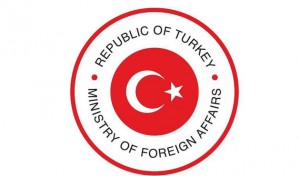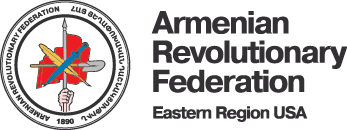Turkey Summons German Ambassador over Genocide Teaching Guide

On Feb. 19, the German ambassador to Turkey was summoned to the Turkish Foreign Ministry to give a statement on a new German textbook centered on the Armenian Genocide.

On Feb. 19, the German ambassador to Turkey was summoned to the Turkish Foreign Ministry to give a statement on a new German textbook centered on the Armenian Genocide.
The book was prepared by Prof. Mihran Dabag, the director of the Institute for Diaspora Research and Genocide Studies (Institut für Diaspora und Genozidforschung) of the University of Bochum, Germany, and members of his staff. It was published by the ministry of school in Saxony-Anhalt.
“The material has been developed under a solid scientific perspective,” Minister of Cultural Affairs (Saxony-Anhalt) Stephan Dorgerloh said in a press conference, after the German news magazine Der Spiegel reported on the visit in its April 2 issue. “I suspect that in the current debate the Turkish actors try to make domestic political capital.”
The ambassador was summoned in the context of the current discussion on the status of freedom of press and opinion in Turkey.
“The textbook is the result of a close cooperation between the educational institutions of Saxony-Anhalt and our institute,” Dabag said. “It can be a chance to show how to teach genocide in schools beyond the realm of the discussion on the comparability of collective acts of violence.”
“If not today, in face of the recent violence in the Near East, when then will we accept our obligation to recognize and remember the victims of the genocidal politics of the Ottoman Empire,” he asked.
In 2005, the institute conceptualized a teacher’s guide, entitled “Teaching 20th Century Genocides and Violent State Crimes in School,” for the federal state government of Brandenburg; the guide received wide public attention. Since the guide contained a chapter on teaching the Armenian Genocide in schools, the Embassy of the Republic of Turkey in Germany intervened to prevent its publication. Its efforts, however, were unsuccessful. The guide was published and proved so popular that the first edition was out-of-stock after a short period of time.
The research team of the Bochum University later prepared another teacher’s guide on teaching genocides. Commissioned by the Federal Ministry of Education and Cultural Affairs of Saxony-Anhalt and in cooperation with the Federal Institute for School Quality and Teacher Training, the teacher’s guide, Teaching Genocide in Schools, was published in December 2015.
The textbook comprises the latest state of research and enables teachers to address the topic of genocide in the classroom, as well as to integrate genocide into teaching units within different school subjects (history, politics, ethics, religious education). In the center of the textbook, the Armenian Genocide in the Ottoman Empire is discussed, outlined comprehensively, and integrated in the context of the history of violence in the 20th century.
The teacher’s guide also contains a newly drafted and complete teaching unit for the Armenian Genocide, including didactic materials and edited sources. Both fundamental considerations concerning genocidal violence in the 20th century and short depictions of other genocides complement this thematic focus.
The internationally renowned Institute for Diaspora Research and Genocide Studies, founded in 1994, originates from an Armenian initiative and is under the direction of its founding director, Mihran Dabag, to this day. It was and still is the first and only research institute in Germany specifically devoted to comparative genocide studies and investigations on the emergence, the realization, and the consequences of collective violence. In addition to scientific research, teaching occupies an important place at the institute, and its lectures and seminars enjoy great popularity. The institute’s associates mentor between 150 and 300 students each semester. Additionally, numerous students graduate from the institute and go on to complete their Ph.D. with Dabag. Here, too, the Armenian experience is an important key subject.
The transfer between science, university, and society has always been of great importance to the institute. Scientific conferences and discussion meetings, memorial projects, seminars for adult and teacher education, as well as the realization of thematic weeks and projects in schools rank among the most important activities of the institute.
Within the last 10 years, especially, the latter has become a focus of the institute, which has elaborated materials for teaching and learning about collective violence and genocide. Moreover, the institute plans to make the content available in the form of a multimedia web portal.
To order Teaching Genocide in Schools (128 pages, ISBN/ISSN: 1438-4787), via the Landesinstitut für Schulqualität und Lehrerbildung (LISA) of Saxony-Anhalt, visit https://www.bildung-lsa.de/bildungsland/landesinstitut_fuer_schulqualitaet_ und_lehrerbildung_sachsen_anhalt__lisa_/publikationen.html.
Source: Armenian Weekly Mid-West

